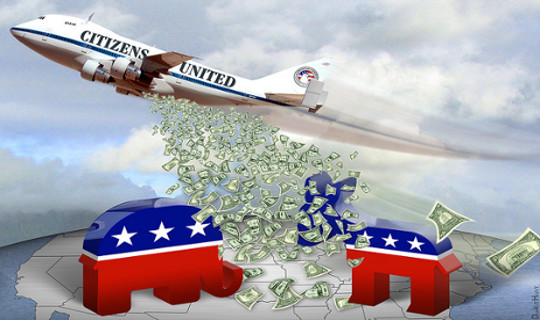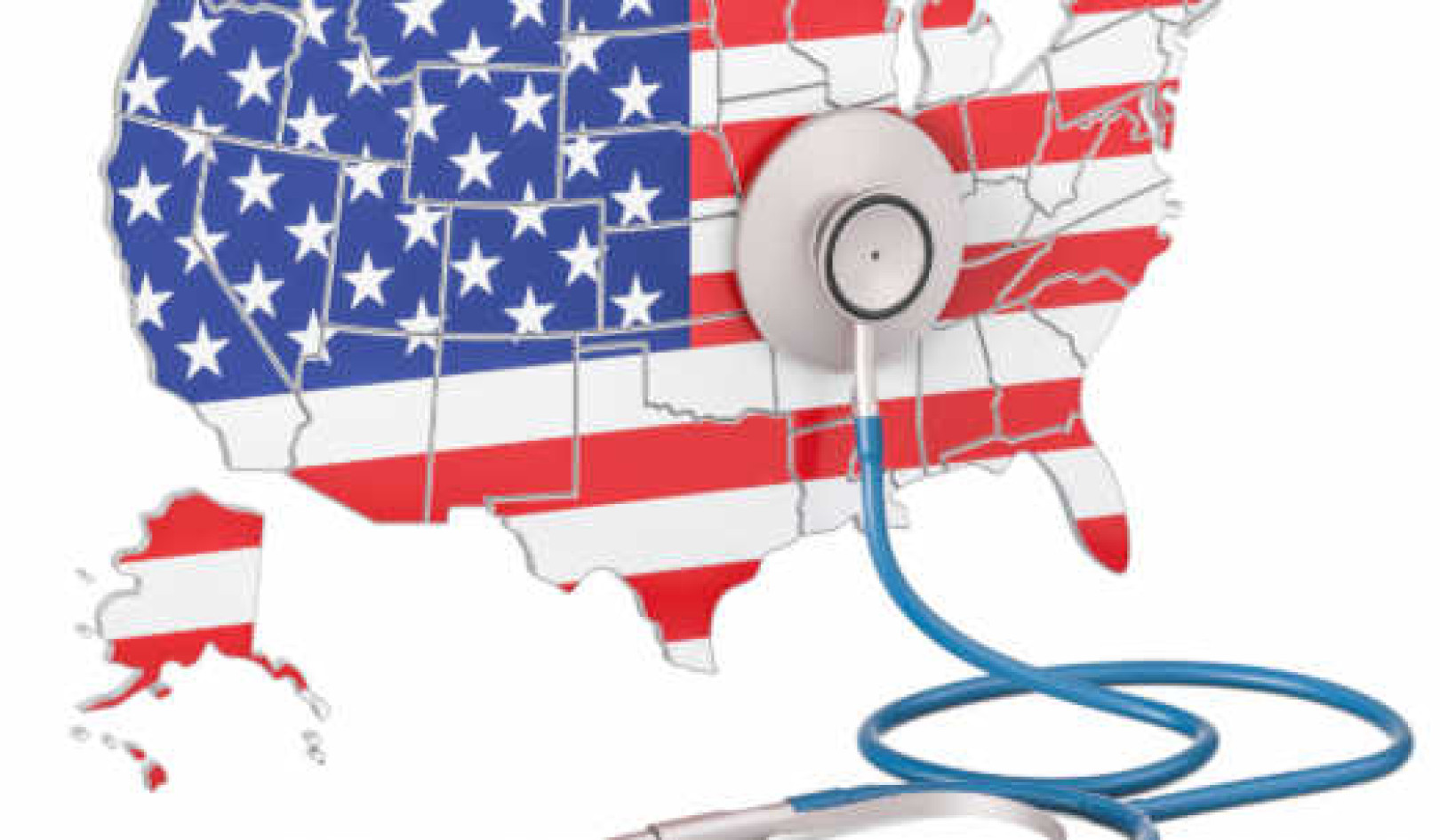
 he Internal Revenue Service says it won't come out with new proposed rules for so-called dark money groups until late spring at the earliest, increasing the likelihood that no changes will take effect before the 2016 elections.
he Internal Revenue Service says it won't come out with new proposed rules for so-called dark money groups until late spring at the earliest, increasing the likelihood that no changes will take effect before the 2016 elections.
These groups 2014 social welfare nonprofits that can engage in politics, but do not have to disclose their donors 2014 have become a major force in elections, pouring at least $257 million into the 2012 elections. The Wesleyan Media Project estimates that dark money paid for almost half the TV ads aired in the 2014 Senate races.
The IRS originally issued a draft version of the rules for dark money groups more than a year ago, but withdrew them for revisions after receiving intense criticism from both ends of the political spectrum.
Some advocates of campaign finance reform have touted tighter IRS controls as the best shot of reining in the influence of such groups ahead of the 2016 presidential race.
Under the current IRS rules, social welfare nonprofits are allowed to spend money on politics as long as they are "primarily engaged in promoting in some way the common good and general welfare of the people of the community." But it's unclear exactly how much revenue groups can put toward politics, and which activities count as political.
As ProPublica has reported, social welfare nonprofits have sworn under penalty of perjury that they would not engage in politics and then spent heavily to influence campaigns. Some have spent much or all of the money they raised on elections. Others have reported campaign expenditures to the Federal Election Commission, then told the IRS that the spending was not political.
IRS Commissioner John Koskinen said in June that the agency expected to have revamped draft rules out early next year, but spokeswoman Julianne Breitbeil now says it will take longer. Even the late spring deadline is hardly firm: Marcus Owens, a Washington lawyer who used to run the IRS' exempt organizations division, said the agency "regularly misses its self-appointed deadlines" for releasing new rules.
If the IRS issues a proposal in late spring, it's possible new rules could be finalized before the 2016 election, said Lloyd Hitoshi Mayer, a law professor and associate dean at the University of Notre Dame who is an expert in nonprofit tax law.
But the agency needs to clear several hurdles to pull this off.
Once the new draft comes out, the agency will accept comments from the public 2014 figure 60 to 90 days for that. The IRS is also required to hold a public hearing, which typically follows the comment period. After that, the agency will revise the rules again or move to finalize them, said Nancy Ortmeyer Kuhn, a former senior attorney for the exempt organizations division in the IRS chief counsel's office.
"I would guess at a minimum it would be a year before they'd be finalized, but that's optimistic," she said.
John Pomeranz, a Washington lawyer who has advised politically active social welfare nonprofits, said he thought it would be "almost impossible" for the IRS to have the rules in place in 2016.
"I would buy you lunch if these rules go into effect before Jan. 1, 2017," he said.
Even if the IRS manages to finish the rules next year, there may be other roadblocks.
Republicans, who will control both the Senate and the House next year, could propose legislation blocking or postponing any new strictures on dark money. The House passed a bill introduced by Rep. Dave Camp, a Michigan Republican, earlier this year that would have delayed the implementation of new IRS rules on nonprofits, but the measure didn't make it out of the Senate. A spokeswoman for Camp declined to comment on whether he would introduce a similar bill next year.
"This is going to be a bitter battle," said Gary Bass, the executive director of the Bauman Foundation, who has called for clearer regulations. Lawsuits filed by those who think the rules don't go far enough or those who think they go too far could delay the rules further, he added.
It's unknown how aggressive the IRS' new proposal will be in attempting to rein in political activity by social welfare nonprofits. Some observers expect the agency to set a hard limit on how much of groups' spending can be devoted to politics, perhaps 40 percent or less. Others think the limit will be higher 2014 close to 50 percent 2014 or that there won't be a numerical limit at all.
David Keating, president of the Center for Competitive Politics, which has called for less restrictive campaign finance regulations, said he doubted the rules would significantly affect the social welfare nonprofits that spend the most on elections, such as Crossroads GPS on the right and Patriot Majority USA on the left.
"For the people who are pinning their hopes on IRS rules changing how these groups operate, I think they're kidding themselves," he said. "I don't think it's going to happen."
Kuhn, the former IRS senior attorney, said she expected the agency to come up with rules that are "bland and hard to attack."
"The whole controversy of dark money 2014 I really don't think that's going to be solved through the IRS regulatory process," she said.
This article originally appeared on ProPublica
About The Author
 Theodoric Meyer is ProPublica’s reporting fellow. He started at ProPublica as a reporting intern in 2012 and previously worked as a reporting intern at The New York Times and The Seattle Times. He was a lead reporter for ProPublica’s “After the Flood” series, which won the Deadline Club Award for Local Reporting in 2014. His reporting on the National Security Agency with Justin Elliott was cited in Judge Richard J. Leon’s ruling that N.S.A. surveillance of phone metadata was likely unconstitutional. He is a graduate of McGill University and Columbia University.
Theodoric Meyer is ProPublica’s reporting fellow. He started at ProPublica as a reporting intern in 2012 and previously worked as a reporting intern at The New York Times and The Seattle Times. He was a lead reporter for ProPublica’s “After the Flood” series, which won the Deadline Club Award for Local Reporting in 2014. His reporting on the National Security Agency with Justin Elliott was cited in Judge Richard J. Leon’s ruling that N.S.A. surveillance of phone metadata was likely unconstitutional. He is a graduate of McGill University and Columbia University.
InnerSelf Recommended Book:
What Then Must We Do?: Straight Talk about the Next American Revolution
by Gar Alperovitz
 In What Then Must We Do? Gar Alperovitz speaks directly to the reader about where we find ourselves in history, why the time is right for a new-economy movement to coalesce, what it means to build a new system to replace the crumbling one, and how we might begin. He also suggests what the next system might look like—and where we can see its outlines, like an image slowly emerging in the developing trays of a photographer's darkroom, already taking shape. He proposes a possible next system that is not corporate capitalism, not state socialism, but something else entirely—and something entirely American.
In What Then Must We Do? Gar Alperovitz speaks directly to the reader about where we find ourselves in history, why the time is right for a new-economy movement to coalesce, what it means to build a new system to replace the crumbling one, and how we might begin. He also suggests what the next system might look like—and where we can see its outlines, like an image slowly emerging in the developing trays of a photographer's darkroom, already taking shape. He proposes a possible next system that is not corporate capitalism, not state socialism, but something else entirely—and something entirely American.
Click here for more info and/or to order this book on Amazon.























